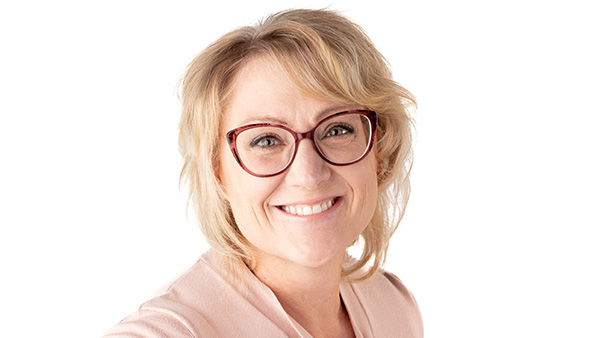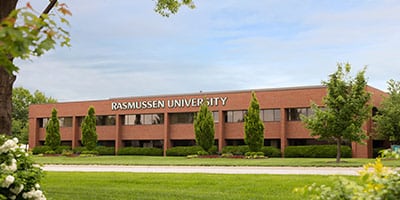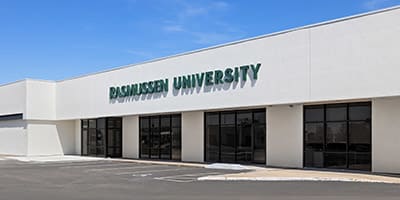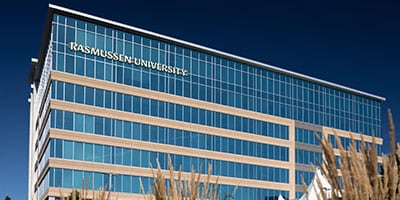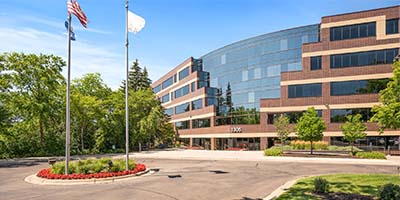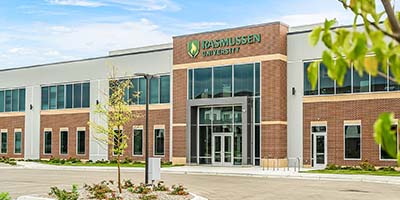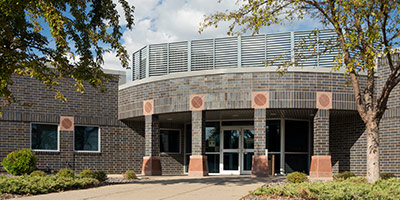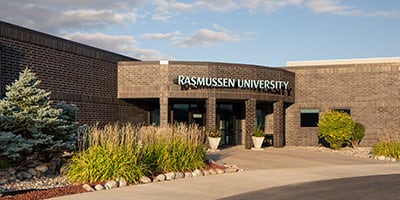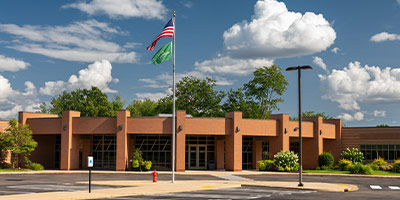Find Out More About:
Bachelor of Science in Nursing (BSN) Program
Bachelor’s Degree
You’re ready to pursue a fulfilling career as a registered nurse (RN) or continue your education in our RN to BSN program. As a national leader in nursing education, our BSN degree program can help you get there efficiently and with the support you need. With multiple entry tracks, you’ll see how we have a Nursing program for every student at every stage of their career path.
Program At a Glance
Program Overview
Pursue a BSN Degree Designed for Nursing Students
In your online and in-person Nursing courses, you’ll work alongside experienced faculty and motivated peers with the same goal: a faster timeline to becoming a registered nurse with a BSN degree.
No matter where you’re starting, our CCNE-accredited BSN program is designed to help every nurse at every level.5 Choose your entry track:
- BSN Standard Degree: if you don’t have a college diploma or degree. Finish in as few as 33 months.6
- Accelerated BSN Second Degree: if you already have a Bachelor’s degree and want to switch to nursing. Finish in as few as 18 months.6
At Rasmussen, there are no confusing admissions requirements, rubrics or hidden entrance criteria—we'll help you prep everything you need. With eight start dates a year, you can get started soon on your Bachelor’s degree. Once you’ve successfully completed your admissions requirements, you’re admitted directly into the BSN program—there is no need to apply twice.
Looking for your online RN to BSN?
Earn your online RN to BSN degree in as few as 12–18 months if you’re already a registered nurse.6 If you’re a licensed practical nurse (LPN), ask about our LPN–RN Bridge.
Learn More at a Nursing Information Session
Accreditation
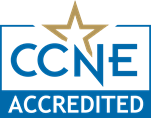
The baccalaureate degree program in nursing at Rasmussen University is accredited by the Commission on Collegiate Nursing Education.
Commission on Collegiate Nursing Education (CCNE)
655 K Street NW, Suite 750
Washington, DC 20001
202-887-6791
Courses
What Types of Nursing Courses Will I Take?
In our BSN program, you’ll take online and on-campus courses, as well as participate in on-site clinicals. As a BSN student, you’ll collaborate with experienced nursing faculty and other Nursing students in state-of-the-art simulation centers and updated labs. You’ll feel prepared for the NCLEX-RN®9 exam and be on your way to becoming a confident RN.
Professional Nursing Skills II
Discover higher-level nursing skills for diverse patients across the lifespan to improve patient outcomes and health promotion, including newborn and pediatric.
Integration of Genetics and Genomics into Ethical Nursing Practice
Study multidimensional components of genetics and genomics in nursing practice. Examine the influences of legal and governmental policies on ethical advocacy for at-risk patients.
Emerging Healthcare Technologies and Innovation
Compare strategies to integrate principles of quality and safety with innovative patient technology. Use technology to inform data-driven decisions and integrate into healthcare.
Transition to Practice
Prepare for entry-level nursing practice by collaborating within professional nursing teams to design innovative solutions and promote quality nursing leadership and safety.
Admission Requirements
Prerequisite Courses for Admission
Waitlists at Many Campuses for Qualified Applicants10
Cost Application Fee
At Rasmussen University, there are no prerequisite courses for admission into the Bachelor of Science in Nursing (BSN) program. BSN Second Degree applicants must hold a bachelor's degree that has been awarded from an accredited institution of higher learning as recognized by the U.S. Department of Education or the Council for Higher Education. There are no wait lists at many campuses for qualified applicants.10 High school verification documentation may be required.11
Students for the standard and second degree Accelerated BSN tracks will need to pass the nursing entrance exam or have a conferred Bachelor’s, Master’s or Doctoral degree with a GPA of 2.25 or higher from an accredited institution of higher learning as recognized by the US Department of Education or by the Council for Higher Education Accreditation.
You only need to apply once, and you can begin your BSN classes when it’s convenient for you with our eight start dates a year. Speak to an admissions representative for additional entrance requirements related to your specific entry track.
Do you want to learn more about the BSN program?
Program Outcomes
What Will I Be Prepared to Do When I’m Done?

Take the NCLEX-RN®9 Exam
Preparation for the National Council Licensure Examination, or NCLEX®, begins the minute the program does. From in-person practice and peer support to library and learning services, the Rasmussen University School of Nursing will provide the resources you need to pursue your RN license.

Confidently Work in the Nursing Field
Equipped with essential nursing training and employer-focused transferable skills, our BSN graduates can confidently pursue in-demand registered nurse roles.
Advance to Your Master’s Degree
Through our accelerated Master’s pathway, you can take up to two Master of Science in Nursing (MSN) courses as a part of the Bachelor of Science in Nursing program. If you decide to continue with your MSN, you’ll start your program two courses ahead of schedule and save up to $2,820 on tuition.12
Alumni Spotlight
Education Advancement
A Nursing Career of Lifelong Learning
With the many Nursing degree options at Rasmussen University, you can complete your program and easily transfer credits from one level to the next, saving you time and money. Now that you’re ready to continue your passion for nursing as a BSN student—we have the entry tracks and advanced higher education to help you reach your goals. If you also have goals of continuing to your MSN or DNP, the BSN program sets you up perfectly to pursue your higher education with us at the graduate level.
Bachelor’s Degree: Nursing (RN to BSN or BSN)
Next step if:
You’re ready to earn your BSN, want to become a Bachelor-prepared registered nurse and are looking for opportunities to advance your career.
Start here if:
You want to begin your nursing career as a BSN-prepared registered nurse. Choose from two pre-licensure entry tracks—standard and second degree.
Master's Degrees: Nursing (MSN)
Master of Science in Nursing (MSN)
You are interested in making a positive impact on healthcare and nursing leadership with the choice of three specializations:
- Nursing Leadership and Administration
- Nursing Education
- Healthcare Technology, Simulation and Informatics
Common Careers:
- Director of Nursing
- Director of Education
- Chief Nursing Informatics Officer
- Chief Nursing Officer
MSN Nurse Practitioner (NP)
You are interested in making a positive impact as a nurse practitioner with the choice of four specializations:
- Adult-Gerontology Primary Care NP
- Family NP
- Pediatric Primary Care NP
- Psychiatric-Mental Health NP
Common Careers:
- Nurse Practitioner
Doctoral Degrees: Nursing (DNP)
Doctor of Nursing Practice (DNP)
A program for nurses called to at the highest levels in healthcare and public health and policy—the definitive terminal degree for nurse leaders.
Choose the specialization that best aligns with your interests and career goals:
- Executive Leadership
- Public Health and Policy
Common Careers:
- Chief Nursing Officer
- Nursing Administrator
- Director of Public Health and Policy
Costs & Savings
Tuition and Fees
Earning your degree is a valuable investment that needs to fit into your budget. We are committed to providing affordable tuition and breaking down the numbers so you can see how achievable your goals are—and our tuition estimator tool provides an idea of your total tuition and fees.
BSN Standard Degree
Tuition Per Credit $377
Total Credits x 180
Total Tuition $67,860
Total Fees + $13,245
Full-Time Estimated Tuition and Fees $81,105*
BSN Second Degree
Tuition Per Credit $377
Total Credits x 106
Total Tuition $39,962
Total Fees + $8,745
Full-Time Estimated Tuition and Fees $48,707*
*This reflects pricing for Florida students. Please speak with an admissions representative or use the tuition estimator tool to calculate your costs.
Need Help Paying for College?
Higher education should be a manageable investment. Talk to an admissions representative and learn how our Bachelor of Science in Nursing program is designed to be more affordable with transfer credits, self-directed assessments, grants, scholarship opportunities, corporate grants and military grants for those who qualify.
Campuses
Where Can I Find a Nursing School Near Me?
At Rasmussen University, our Bachelor of Science in Nursing program provides the benefits of online learning and on-campus experience. Our campus labs have the equipment and supplies needed to practice day-to-day skills and build nursing confidence. Whether online or on campus, our exceptional support and resources are available to all students.
Click below to find a hybrid in-person and online BSN program near you.
Florida Locations
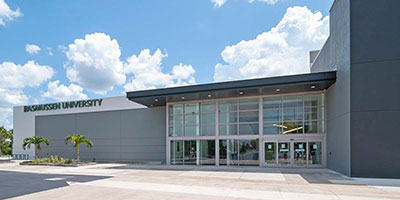
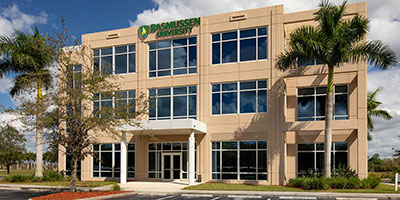
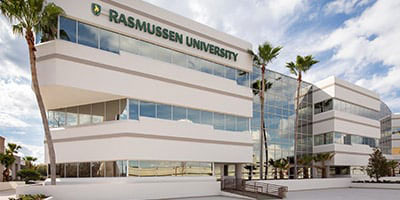
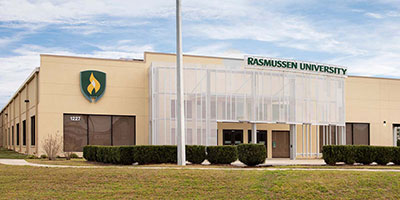
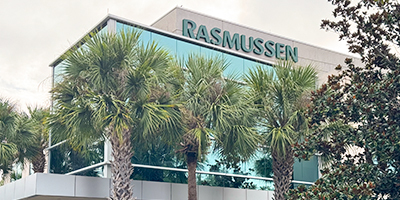
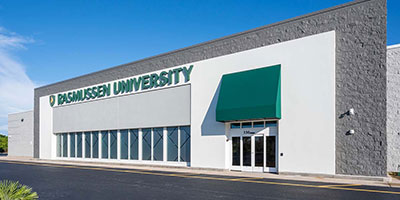
Get Started
How to Start Your Nursing Program
Sign Up for a Nursing Information Session
The first step to begin the BSN program at Rasmussen University is to attend one of our required information sessions.
Complete Admissions Process
Begin Classes on Next Available Start Date
Next Start Date: April 6, 2026
What is a Nursing Information Session?
A Nursing Information Session is an opportunity for you to get a firsthand look at what our Nursing school has to offer. Get a closer look at the campus, learn more about the labs equipped with the latest healthcare technology and see how we provide a safe learning environment.
You can speak with a Nursing-specific admissions representative and get a clear picture of your nursing career path. You'll also have the chance to get your questions answered, start the enrollment process and more.
Nursing Information Sessions will be held virtually unless noted. Upon registering for a session, further details will be shared via email.
Request Info
Ready to Get Started?
As a national leader in nursing education, we have the hands-on curriculum and dedicated support to help you become the compassionate and driven nurse you’re meant to be.

Schedule a Nursing Info Session
Attend an online Nursing Information Session to learn more about Rasmussen Nursing programs and program requirements. You'll also receive information about Hesi® scores18, background checks, immunizations, clinical course experiences, course scheduling and more.

Start Your Application
You can start your application right away at no cost. Your admissions representative will reach out to walk you through the rest of the process and help you start with confidence. You’ll also get financial aid info and answer any additional questions.

Still Have Questions?
You’ll find the support you need to grow as a nurse from mentors and faculty in this program. Our library services, academic support and on-demand career services at our Nursing school are ready to help.
Request More Information
Fill out the form for further BSN program details such as program-specific coursework, applying for classes, financial aid (for those who qualify), and customized support.
Frequently Asked Questions (FAQs)
Have Questions? Look Here.
- Q:
What is the meaning of BSN for a degree?
BSN is an undergraduate degree which stands for Bachelor of Science in Nursing. A BSN degree is one way to pursue your RN licensure or gain more advanced skills if you’re already an RN.
- Q:
What types of skills will I gain from this program?
Patient Care
Enhance critical-thinking skills for better patient outcomes with a focus on caring for the whole person through in-person simulations and clinical course experiences at healthcare facilities in a variety of healthcare systems.Evidence-Based Practice and Treatment
Search and critique published research. Propose creative, innovative and evidence-based solutions to clinical practice problems.Leadership and Professional Identity
Examine the core values needed to create a professional identity that reflects leadership and management attributes.Baccalaureate Essentials, QSEN and NLN Competencies
Gain a solid theoretical foundation of nursing according to the Essentials of Baccalaureate Education for Professional Nursing Practice, Quality and Safety Education for Nurses (QSEN), and National League for Nursing (NLN) competencies.
- Q:
Is BSN considered a higher qualification than RN?
RN is a licensed credential that individuals earn and maintain (as well as a job title), while a Bachelor of Science in Nursing (BSN) is a degree that many registered nurses obtain.
While you can still become an RN without earning a BSN degree, the major difference is the path and time commitment required. You can go straight to the job market as an RN with your associate degree, or you can opt to begin at a more advanced level of education with a BSN degree. Having a BSN under your belt may open the door to a greater variety of career options in specialized nursing units as well as nursing management and leadership roles.
- Q:
Can one obtain a BSN without prior RN license or prerequisite courses?
Yes, you can earn your BSN degree without being a certified RN! Plus, there are no prerequisite courses required for admission at our School of Nursing. That’s why we offer multiple entry tracks to help BSN students at every level get started—whether it’s your first time in nursing and you're looking for a traditional BSN program or you’re adding on to your experience as a second degree program.
Second degree prospective students with a non-nursing or non-health sciences Bachelor's degree may need to complete five health science general education courses, such as General Chemistry, Anatomy & Physiology 1, Anatomy & Physiology 2, General Microbiology and Human Nutrition.
Reach out to an admissions representative for more information
- Q:
Will I have to complete a nursing entrance exam to get into the BSN program?
That depends! Students for the standard and second degree Accelerated BSN tracks will need to pass an entrance standardized exam like the HESI-A2.
You may be able to let your previous degree do the work for you. If you have a Bachelor’s or Master’s degree, you may be able to skip the HESI exam.
- Q:
How do online nursing degrees function, particularly in terms of structure and delivery?
Our BSN degree program is a hybrid of online and in-person classes. It also includes self-directed assessments to help you save time and money. The flexible online courses still give you the knowledge and skills you need through expert instruction and real-life examples. The campus-based classes let you dive into campus life and gain hands-on clinical practice as a future BSN nurse.
- Q:
If I complete my BSN degree online, will hospitals accept me?
Employment conditions will vary, but you can feel confident in our CCNE-accredited BSN degree program. Accreditation means that our nursing curriculum is built to CCNE minimum requirements and standards—qualifications that hospitals and clinics are looking for.
In addition, all Rasmussen programs are developed with a “backward design” mindset, meaning we prioritize the intended learning outcomes rather than just basic topics to be covered. It’s about how you’ll apply your skills throughout your career. You’ll gain advanced skills in leadership, critical thinking, health promotion and more.
- Q:
How are online RN to BSN programs perceived in terms of reputation?
Our online RN to BSN program helps RNs earn their BSN degree faster. Since these students are already an RN, they are equipped with vast hands-on experience. The remaining classes needed to earn their BSN degree are online, with additional in-person clinicals to ensure full skills advancement. Plus, our RN to BSN program is CCNE accredited for student and employer confidence.1
Don't See Your Question Here?
Our dedicated team of admissions representative can help you answer questions related to tuition, financial aid, admissions and more.
Speak with an Admissions Representative
BSN Program Outcomes
The baccalaureate degree program in nursing at Rasmussen University is accredited by the Commission on Collegiate Nursing Education (http://www.ccneaccreditation.org).
View Student Achievement Data below, which includes each campus' NCLEX-RN Pass Rate.
- Bachelor of Science in Nursing Program
BSN Program Outcomes Rates at Rasmussen University Campuses
Campus and Program NCLEX-RN Pass Rate 1a Campus and Program: Rasmussen University - Central Pasco Bachelor of Science in Nursing Program14 NCLEX-RN Pass Rate 1a : 96% Campus and Program: Rasmussen University - Fort Myers Bachelor of Science in Nursing Program14 NCLEX-RN Pass Rate 1a : 95.45% Campus and Program: Rasmussen University - Ocala Bachelor of Science in Nursing Program15 NCLEX-RN Pass Rate 1a : 93.55% Campus and Program: Rasmussen University - Tampa Bay Bachelor of Science in Nursing Program14 NCLEX-RN Pass Rate 1a : 92.11% Campus and Program: Rasmussen University - Overland Park Bachelor of Science in Nursing Program16 NCLEX-RN Pass Rate 1a : 83.33% Campus and Program: Rasmussen University - Bloomington Bachelor of Science in Nursing Program17 NCLEX-RN Pass Rate 1a : 90.72% Campus and Program: Rasmussen University - Fargo Bachelor of Science in Nursing Program14 NCLEX-RN Pass Rate 1a : 94.12% - 1a NCLEX Pass Rate is based on First-Time Candidates taking the licensure exam in 2024.
-
88 of the 97 Rasmussen University BSN graduates in Minnesota (90.7%) who attempted the NCLEX-RN exam in 2024 passed on their first attempt. Source: https://mn.gov/boards/assets/2022-2025_RN_NCLEX_tcm21-280648.pdf
-
183 out of 194 Rasmussen University BSN graduates in Florida (94.3%) who attempted the NCLEX-RN exam in 2024 passed on their first attempt. Source: https://floridasnursing.gov/education-and-training-programs/
-
Rasmussen University Laptop Program
Prospective students who enroll through Rasmussen University in any of the programs noted below, who start their program on or after November 12, 2025 may be eligible to receive a laptop from Rasmussen University.
Programs Eligible for the Laptop Program:
- Business:
- Accounting Bachelor’s and Associate’s,
- Business Management Bachelor’s and Associate’s,
- Finance Bachelor’s,
- Human Resources and Organizational Leadership Bachelor’s and Associate’s,
- Marketing Bachelor’s and Associate’s and
- Supply Chain and Logistics Management Bachelor’s
- Education:
- Early Childhood Education Bachelor’s
- Health Sciences
- Health and Wellness Bachelor’s,
- Health Information Management Bachelor’s,
- Health Information Technician Associate’s,
- Health Sciences Associate’s (Rasmussen University Online only),
- Healthcare Associate’s (Rasmussen University Online only),
- Medical Assisting Diploma,
- Healthcare Management Bachelor’s,
- Medical Laboratory Technician Associate’s,
- Physical Therapist Assistant Associate’s,
- Radiologic Technology Associate’s, and
- Surgical Technologist Associate’s
- Justice Studies
- Criminal Justice Bachelor’s and Associate’s,
- Paralegal Associate’s
- Nursing
- Practical Nursing Diploma,
- Professional Nursing Associate’s,
- Bachelor of Science in Nursing,
- RN to BSN program
In order to qualify for the laptop, a student will need to opt in by the deadline listed below, receive acceptance to the University, sign and submit the Rasmussen laptop agreement and follow the process as outlined in the emails received via their Rasmusen student email (SMAIL).
- Must enroll in one of the eligible programs by enrollment deadline for the applicable start.
- Opt-in document must be completed by the sixth business day of the applicable quarter.
- Once you have received your acceptance notification from Rasmusen University, you will receive the Rasmussen Laptop Agreement. You will need to sign and complete the form by the last day of the quarter in order to have the laptop shipped.
- Laptops will be shipped when the student has been accepted to the University, the Laptop Agreement has been signed and after the seventh business day of the quarter up until the last day of the quarter. If the student is not accepted to the University and does not have a signed Laptop Agreement submitted by the last day of the quarter, they will forfeit their eligibility to receive a laptop.
Additional Terms and Conditions:
- This offer was first available to students on May 8, 2024, with modifications to eligible programs made on August 7, 2024 and November 12, 2025.
- Service and maintenance of the laptop will not be provided by Rasmussen, Collegis or APEI IT.
- Only one laptop will be provided per student. If the laptop is damaged, lost or stolen, a replacement will not be provided.
- Students who have previously received a laptop through this promotion and are re-entering will not be eligible for this offer a second time.
- Students must complete a minimum of three quarters of enrollment or return the laptop following the instructions "Device Return Process" below. Students have two weeks from the date of withdrawal to return the laptop.
- Grants and offers are non-transferable, and no substitution or cash equivalent/refund is allowed. The cost of the laptop will be included in the financial aid packaging as other financial assistance.
- Qualified students may combine this offer with other grants and scholarships offered by Rasmussen University, with the exception of the Professional Achievement Grant.
- Rasmussen reserves the right to modify or terminate this program in the future.
- Employees of APEI and APEI Educational Units, including Rasmussen College, LLC and their family members are not eligible to participate.
Device Return Process
If you are no longer eligible to keep your device, please contact Microtek Customer Service at 303-650-0543 or [email protected].
To request your prepaid return shipping label (e-label), please email [email protected] and include the following information:
- Student Name
- Student ID
- School Attending
- Student Address
- Student Phone Number
- Laptop Serial Number (located on the bottom of the device)
- Reason for Return
Once this information is received, Microtek will process your request and send you a UPS e-label by the end of the business day.
Important Shipping Instructions:
- The e-label will come directly from UPS via email.
- Please do not place the return label directly on the original computer box.
- If possible, place the original box inside a larger shipping box for better protection.
- Be sure to securely affix the label to the outer shipping box before sending your device.
- Business:
-
Microsoft is a registered trademark of Microsoft Corporation.
-
The baccalaureate degree program in nursing at Rasmussen University is accredited by the Commission on Collegiate Nursing Education (CCNE), 655 K Street, NW Suite 750, Washington, DC 20001, 202-887-6791.
-
Completion time is dependent on transfer credits accepted and the number of courses completed each term.
-
Bureau of Labor Statistics, U.S. Department of Labor, Occupational Outlook Handbook, Registered Nurses at https://www.bls.gov/ooh/healthcare/registered-nurses.htm (visited November 26, 2024). Employment conditions in your area may vary.
-
National Council of State Boards of Nursing (NCSBN). “Active RN Licenses.” https://www.ncsbn.org/nursing-regulation/national-nursing-database/licensure-statistics/active-rn-licenses.page. Retrieved June 3, 2024.
-
NCLEX-RN is a registered trademark of the National Council of State Boards of Nursing, Inc.
-
Select campuses have limited seats per start date that may result in qualified candidates not being selected for admission or being offered a position on a wait list. Additional admissions requirements apply, please see the course catalog for details.
-
High school verification documentation is required for any applicant enrolling in a program through a Florida residential campus, such as an official transcript or standard high school diploma.
-
Number of eligible courses varies by program and ranges from one to two courses. Time and cost savings are dependent on the eligible student enrolling and completing both the Bachelor’s and Master’s degrees at Rasmussen University through the accelerated Master’s pathway. MSN completion time is dependent on the number of courses completed each term. Please speak to an admissions representative for details.
Students must have a conferred Bachelor’s, Master’s or Doctoral degree with a GPA of 2.25 or higher from an accredited institution of higher learning as recognized by the US Department of Education or by the Council for Higher Education Accreditation.
-
The Bachelor of Science in Nursing program is 180 total credits. 106 total credits assumes the entrance requirements for the Second Degree Accelerated BSN (A-BSN) option are met, resulting in 74 transfer credits from a prior degree.
-
The ABSN meets the educational requirements to apply for licensure as a registered nurse (RN) in Florida, Kansas, Minnesota, North Dakota and Wisconsin. Other eligibility requirements may apply; please verify your eligibility against your state’s board of nursing rules. This program may not meet the educational requirements for licensure as a nurse in states not listed above.
Commission on Collegiate Nursing Education (CCNE)
The Bachelor of Science in Nursing degree program at Rasmussen University is accredited by the Commission on Collegiate Nursing Education.Commission on Collegiate Nursing Education (CCNE)
655 K Street NW, Suite 750
Washington, DC 20001
202-887-6791 -
The BSN program at North Orlando campus is considered a satellite program.
The ABSN meets the educational requirements to apply for licensure as a registered nurse (RN) in Florida, Kansas, Minnesota, North Dakota and Wisconsin. Other eligibility requirements may apply; please verify your eligibility against your state’s board of nursing rules. This program may not meet the educational requirements for licensure as a nurse in states not listed above.
Commission on Collegiate Nursing Education (CCNE)
The Bachelor of Science in Nursing degree program at Rasmussen University is accredited by the Commission on Collegiate Nursing Education.
Commission on Collegiate Nursing Education (CCNE)
655 K Street NW, Suite 750
Washington, DC 20001
202-887-6791 -
The BSN program at the Topeka campus is considered a satellite program.
The ABSN meets the educational requirements to apply for licensure as a registered nurse (RN) in Florida, Kansas, Minnesota, North Dakota and Wisconsin. Other eligibility requirements may apply; please verify your eligibility against your state’s board of nursing rules. This program may not meet the educational requirements for licensure as a nurse in states not listed above.
Commission on Collegiate Nursing Education (CCNE)
The Bachelor of Science in Nursing degree program at Rasmussen University is accredited by the Commission on Collegiate Nursing Education.
Commission on Collegiate Nursing Education (CCNE)
655 K Street NW, Suite 750
Washington, DC 20001
202-887-6791 -
The BSN program at Mankato, Eagan, and Hennepin/Anoka campuses are considered satellite programs.
The ABSN meets the educational requirements to apply for licensure as a registered nurse (RN) in Florida, Kansas, Minnesota, North Dakota and Wisconsin. Other eligibility requirements may apply; please verify your eligibility against your state’s board of nursing rules. This program may not meet the educational requirements for licensure as a nurse in states not listed above.
Commission on Collegiate Nursing Education (CCNE)
The Bachelor of Science in Nursing degree program at Rasmussen University is accredited by the Commission on Collegiate Nursing Education.
Commission on Collegiate Nursing Education (CCNE)
655 K Street NW, Suite 750
Washington, DC 20001
202-887-6791 -
Hesi is a registered trademark of ELSEVIER INC.
Accreditation Details
Higher Learning Commission (HLC)
Rasmussen University is accredited by the Higher Learning Commission ( hlcommission.org ), an institutional accreditation agency recognized by the U.S. Department of Education.
Commission on Collegiate Nursing Education (CCNE)
The baccalaureate degree program in nursing at Rasmussen University is accredited by the Commission on Collegiate Nursing Education.
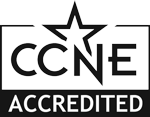
Commission on Collegiate Nursing Education
655 K Street, NW, Suite 750
Washington, DC 20001
202-887-6791
Licensing Information
The ABSN meets the educational requirements to apply for licensure as a registered nurse (RN) in Florida, Kansas, Minnesota, North Dakota and Wisconsin. Other eligibility requirements may apply; please verify your eligibility against your state’s board of nursing rules. This program may not meet the educational requirements for licensure as a nurse in states not listed above.



